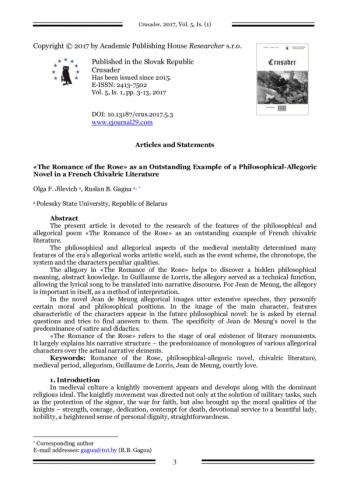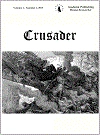The present article is devoted to the research of the features of the philosophical and allegorical poem «The Romance of the Rose» as an outstanding example of French chivalric literature.
The philosophical and allegorical aspects of the medieval mentality determined many features of the era’s allegorical works artistic world, such as the event scheme, the chronotope, the system and the characters peculiar qualities.
The allegory in «The Romance of the Rose» helps to discover a hidden philosophical meaning, abstract knowledge. In Guillaume de Lorris, the allegory served as a technical function, allowing the lyrical song to be translated into narrative discourse. For Jean de Meung, the allegory is important in itself, as a method of interpretation.
In the novel Jean de Meung allegorical images utter extensive speeches, they personify certain moral and philosophical positions. In the image of the main character, features characteristic of the characters appear in the future philosophical novel: he is asked by eternal questions and tries to find answers to them. The specificity of Jean de Meung’s novel is the predominance of satire and didactics.
«The Romance of the Rose» refers to the stage of oral existence of literary monuments. It largely explains his narrative structure – the predominance of monologues of various allegorical characters over the actual narrative elements.


